Coronavirus updates: WHO’s stark warning to Europe amid India crisis
The World Health Organisation has cautioned Europe that India’s coronavirus spiral could happen in the EU as more countries report cases of the Indian COVID variant.
World
Don't miss out on the headlines from World. Followed categories will be added to My News.
The World Health Organisation issued a stark warning to European nations Thursday, saying that relaxing COVID measures could spark a “perfect storm” allowing cases to spiral — as seen in India.
New infections and deaths are soaring in India, which experts have said can in part be blamed on mass gatherings in the nation of 1.3 billion people.
The head of WHO Europe said countries should not make the mistake of relaxing restrictions too soon to avoid similar new waves of infection.
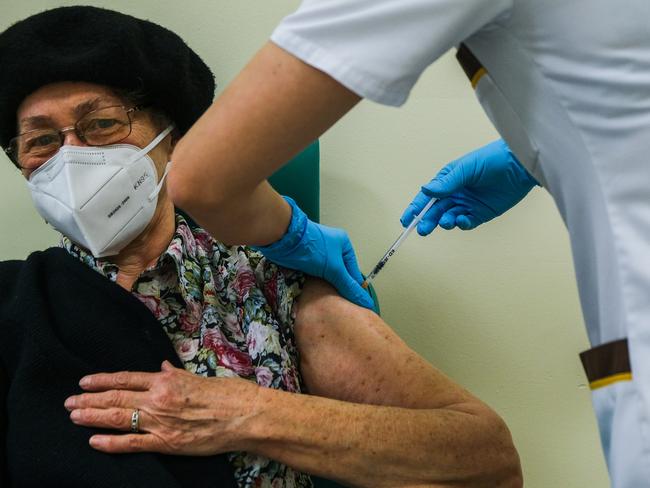
“When personal protective measures are being relaxed, when there are mass gatherings, when there are more contagious variants and the vaccination coverage is still low this can create a perfect storm in any country,” Hans Kluge told reporters on Thursday (local time).
“It is very important to realise that the situation in India can happen anywhere.”
The so-called Indian variant — or B.1.617 — is sweeping the country, but the WHO has not yet confirmed whether it is more transmissible or more deadly than other strains of the virus.
Experts have said large gatherings — at sports matches or weddings, for example — are in part to blame for the explosion in cases.
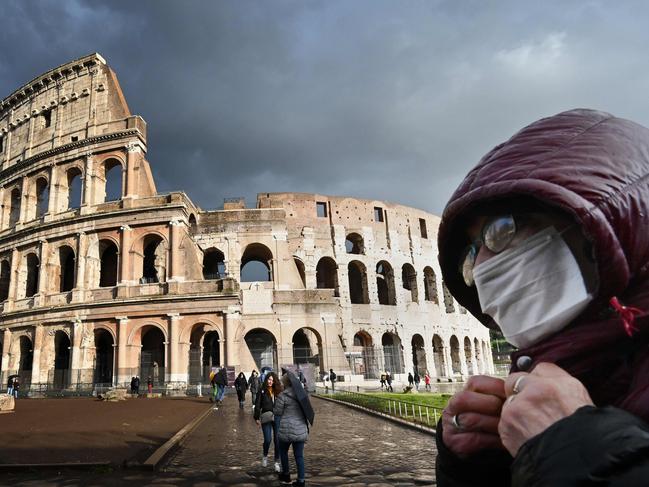
Mr Kluge said European nations must keep in mind that “individual and collective public health and social measures remain dominant factors in shaping the pandemic’s course”.
He noted that while the number of new cases in the region fell “significantly” last week for the first time in two months, “infection rates across the region remain extremely high”.
He said vaccines were on the rise in the European region, with seven per cent of the population now fully inoculated.
The WHO said this means that more people in Europe have now received the vaccine than the number of people who have been infected with the disease.
VIETNAM REPORTS CASES OF INDIAN VARIANT
It comes as Vietnam announced it has detected four cases of a COVID-19 variant believed to be behind a devastating surge of the virus in India, state media said.
Separately, the country also reported its first community outbreak in weeks on Thursday (local time).
Vietnam has so far kept case numbers low -- reporting 2910 of them and 35 deaths -- thanks to mass quarantines and extensive contact tracing.
All four of those infected with the B.1.617 variant of COVID-19, which was first found in India, had recently traveled from the South Asian country and were quarantined upon arrival in Vietnam.
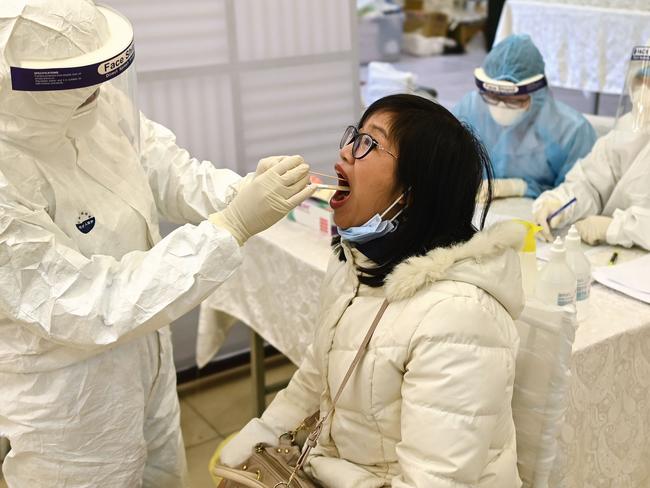
“The genetic sequencing results of four out of five COVID-19 patients arriving from India showed that the patients have been infected with the Indian strain of the virus,” Lao Dong newspaper said.
The results of a fifth person tested will be known on Friday. The discovery of the variant came as more than 1,000 people in a village in Ha Nam province, close to Hanoi, were put under lockdown on Thursday.
A man who returned home to the area from Japan tested positive for COVID-19 this week after a 14-day quarantine and gave the virus to his family, according to the ministry of health.
A total of six people in the area, including the man who returned from Japan, have tested positive, the ministry said.
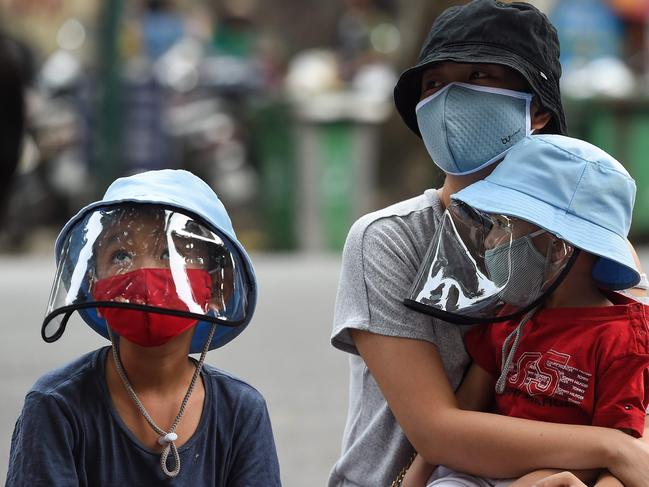
Media reports said infections had also been found in Hanoi, Ho Chi Minh City and northern Hung Yen province.
The last community outbreak, centred around the northern city of Hai Duong, was successfully contained last month.
But the country has been on high alert after a spiralling outbreak in parts of Southeast Asia including Cambodia and Laos, which both share a border with Vietnam.
Vietnam begins a four-day public holiday on Friday and holiday hotspots are expected to be packed.
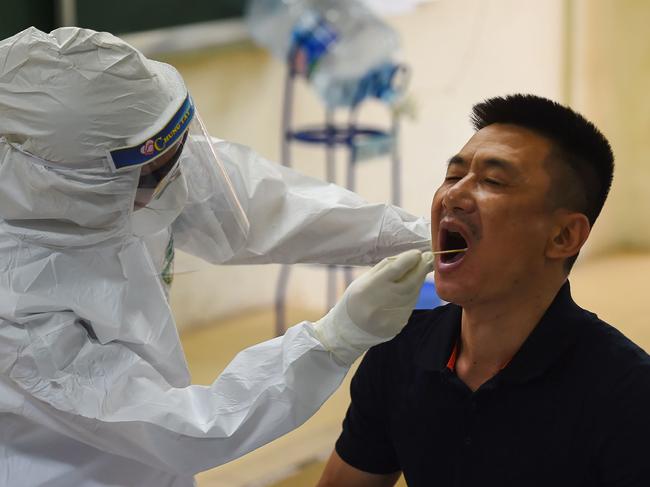
GERMANY, FRANCE REPORT CASES OF INDIAN COVID VARIANT
It comes as both Germany and France have also reported cases of the variant from India.
Germany said on Thursday (local time) said that it had cases of a COVID-19 variant feared to be contributing to a devastating surge in India, the latest country to detect the strain.
“We have isolated cases in Germany, we will release a new report tomorrow,” Lothar Wieler, head of the Robert Koch Institute infectious disease agency, told reporters when asked about the B.1.617 variant of COVID-19, which was first found in India.
The World Health Organisation said earlier this week that the variant had been detected in “at least 17 countries”.
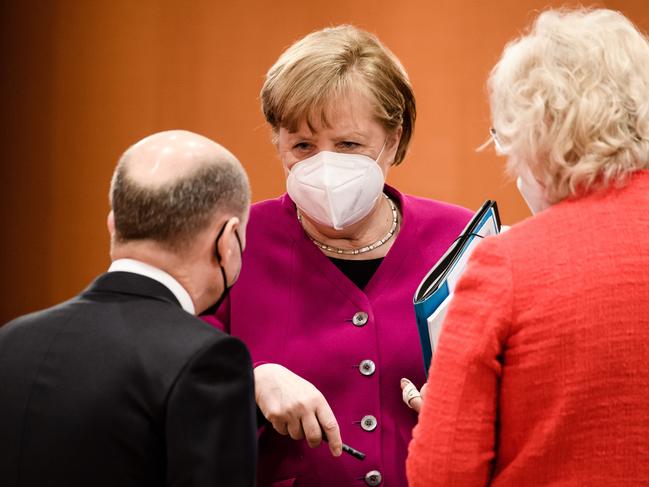
“Most sequences were uploaded from India, the United Kingdom, USA and Singapore,” the WHO said in its weekly epidemiological update on the pandemic.
India is struggling with skyrocketing new cases and deaths, and fears are rising that the variant could be contributing to the unfolding catastrophe.
The explosion in infections in India has driven a surge in global cases. The virus has now killed more than 3.1 million people worldwide.
Germany is currently grappling with a third wave of the pandemic and on Saturday tightened nationwide shutdown measures to try to contain the outbreak.
Europe’s top economy on Thursday reported nearly 25,000 new cases in the previous 24 hours and 264 more deaths, bringing the total to 82,544.
Meanwhile, a case of the Indian variant of the coronavirus has now been detected in mainland France, a regional health agency director said on Thursday (local time).
“We have identified that it was the Indian variant” from someone who had returned from India, Benoit Elleboode, director of an agency in the southwestern department of Nouvelle-Aquitaine told BFMTV and CNews televisions two days after Health Minister Olivier Veron said that “no case of the variant of Indian origin” had been detected in mainland France.

MOSCOW SEES COVID SPIKE
Russian health officials reported a 75-per cent surge in daily coronavirus cases on Thursday in Moscow, where authorities have hesitated to reimpose strict measures to contain the outbreak.
The Russian capital has been the epicentre of the country’s coronavirus outbreak, with cases in Moscow growing by around 2000 per day recently.
On Thursday, health officials reported 3,215 new cases in Moscow, compared to 1840 the previous day.
The steep jump comes as officials push to boost Russia’s lagging vaccination drive, while maintaining that the worst of the country’s outbreak has passed.
Mayor Sergei Sobyanin warned last week of the danger of the rising number of cases in Moscow, but has so far withheld from introducing new restrictions.
Life in Moscow has all but returned to normal since January, when officials ended restrictions on in-office workers and allowed bars and restaurants to work through the night.
Russia has avoided reimposing a second lockdown like those seen across Europe to buttress a struggling economy.
Authorities have banked on the country’s three homegrown vaccines — Sputnik V, EpiVacCorona and CoviVac — to curtail the pandemic, but the country’s jab drive is moving at a slow clip.
Deputy Prime Minister Tatiana Golikova on Tuesday said that 7.7 million Russians have been fully vaccinated, while 12.1 million have received their first dose in the country of 144 million people.
Polls show many Russians are sceptical of coronavirus vaccines. To encourage vulnerable seniors in Moscow to get vaccinated, Sobyanin has offered the over-60s gift cards of 1000 roubles ($A17) that they can spend at shops in the Russian capital if they get a jab.
President Vladimir Putin has said Russia will be able to lift its remaining virus restrictions — which include closed borders — when around 70 per cent of the country’s adult population is vaccinated.
Last week he said he hopes that will happen by autumn and appealed for all Russians to get a vaccine.
Russia has recorded the fifth-highest number of coronavirus cases in the world with a total of nearly 4.8 million infections and 110,000 deaths, according to a tally by health officials.
US, UK AT THRESHOLD OF HERD IMMUNITY
Hugs could be back on the cards for Brits as 70 per cent of adults in England now have coronavirus antibodies.
Herd immunity is reached when enough people have been vaccinated against a disease and have developed protective antibodies against future infection.
According to the Mayo Clinic in the US, 70 per cent of a population is the magic figure required before a nation can pass the threshold of infections into herd immunity.
One in four UK adults are currently fully vaccinated after a record number of second doses were dispensed in a week.
It means a quarter of British adults have had both jabs – a total of 13,201,811 people.
Vaccines have a direct link to antibodies and protecting people from infection and the data from the UK Office for National Statistics (ONS) showed that seven in 10 Brits now have antibodies.
According to The Sun, Dr Mary Ramsay, head of immunisation at Public Health England said: “Vaccines are vital in helping us return to a normal way of life.
“Not only do vaccines reduce the severity of illness and prevent hundreds of deaths every day, we now see they also have an additional impact on reducing the chance of passing COVID-19 on to others.”
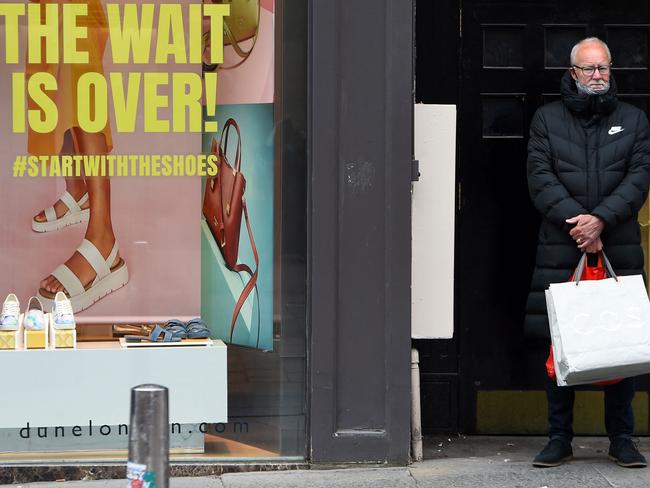
One expert says the rapid vaccine uptake and the high number of Brits with antibodies could mean that people will be able to hug their relatives by June.
Dr Mike Tildesley, from the University of Warwick and a member of the Scientific Pandemic Influenza Group on Modelling (Spi-M) group said people will be able to be close to another person, such as a family member, if both have been vaccinated.
“I think the key thing is that if you’re both vaccinated, of course, it does reduce the risk of anyone becoming severely ill and my hope is that as we move towards that June date, we will be in a position that we cannot just see our loved ones, but also we can hug our loved ones because it’s been a very long time since we’ve been able to do that.”
The ONS data from Wednesday revealed that adults in the North West have the highest levels of antibodies in the country, and the North East has the lowest.
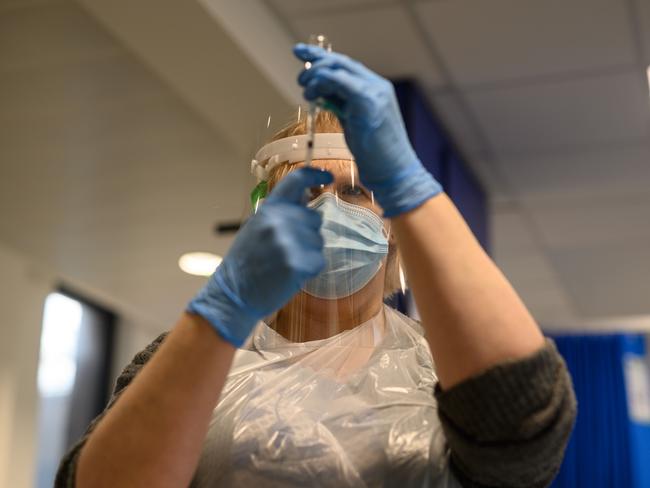
Blood samples were taken and found that 68.3 per cent of the adult population tested positive for antibodies.
The ONS said that the figures show “a clear pattern between vaccination and testing positive for COVID-19 antibodies”.
Sarah Crofts, Senior Statistician for the COVID-19 Infection survey said the data shows the growing success of the vaccine rollout.
Three jabs are currently being rolled out across the UK, the Oxford/AstraZeneca the Pfizer/BioNTech and the Moderna.
Over 33.8 million people have received a first dose with 13.2 also having had a second.
Ms Crofts added: “In England, we estimate 7 in 10 adults would now test positive for antibodies against COVID-19. These kind of antibody levels are really encouraging as we transition out of lockdown.
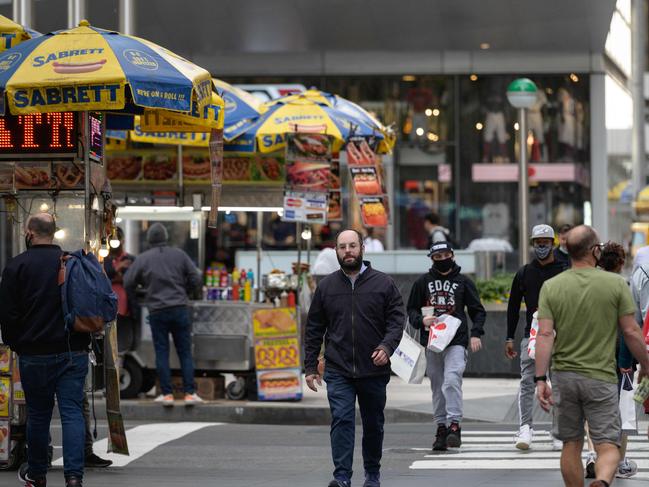
JOE BIDEN HAILS AMERICA’S ‘STUNNING’ VACCINATION PROGRESS
Vaccinated Americans can now breathe a big, deep sigh of relief.
People who have had all their COVID-19 shots can now go outside without wearing a mask unless they’re in large gatherings, the American Centres for Disease Control (CDC) said in updated guidance on Tuesday, local time.
US President Joe Biden has proclaimed that America has made “stunning” progress against the virus, as its top health agency said people who have been vaccinated no longer need to wear masks outdoors.
Those who have received both doses of the Pfizer or Moderna immunisations — or the single-shot Johnson & Johnson vaccine — can be outdoors without a face-covering when walking, running or biking alone or with members of their household, the agency said.
They can also be mask-free for small outdoor get-togethers — even if others attendees are not vaccinated, the agency’s chief, Dr Rochelle Walensky, said at a White House press briefing.
But even those who are fully vaccinated should still wear masks in large outdoor gatherings — like a live performance or a sporting event — where social distancing can be an issue, the agency said.
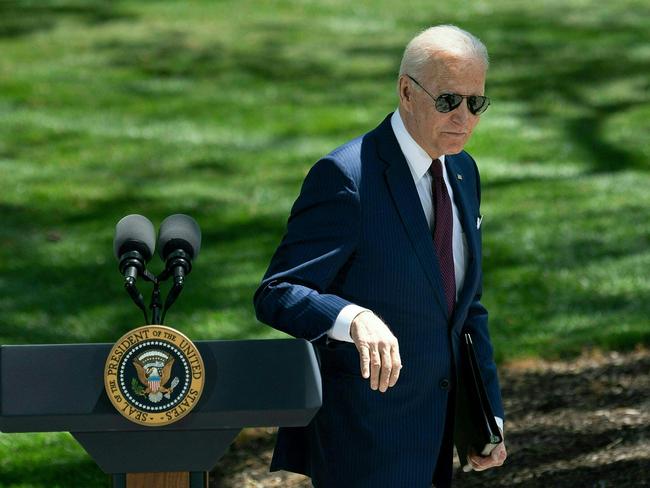
During small indoor gatherings, those who are fully vaccinated can also be mask-free so long as no one else in the group is at a high risk for the virus, the CDC said.
“There are many situations where fully vaccinated people do not have to wear masks, particularly if they are outdoors,’’ Dr Walensky said.
“Generally, for vaccinated people, outdoor activities without a mask are safe. However, we continue to recommend masking in crowded outdoor settings and venues such as packed stadiums and concerts.”
She said the risk of transmission goes up 20-fold from outdoor to indoor.
It comes as the BBC reported that more than a quarter of all adults in the UK are fully vaccinated against COVID-19, according to government figures.
That equates to just over 13.2 million people who have received both jabs while 33.8 million people have received at least one dose.
“This latest milestone is a terrific cause for celebration,” said UK Health Secretary Matt Hancock.
During a Cabinet meeting, Prime Minister Boris Johnson reclaimed it a “huge achievement” and said the future “looks positive” as the domestic vaccine rollout continues.

Unlike the US, however, the UK has insisted that it has no surplus doses of vaccine and is keeping all its jabs for the British population, as 42-year-olds are now eligible to book a coronavirus vaccine appointment.
The UK did commit to sending excess doses from its supply into the Covax charity pool for countries in need of jabs, but the priority is still on the domestic rollout.
Read related topics:Joe Biden


